To design improved vaccination and therapeutic targeting strategies, it is critical to identify and validate epitopes that can be recognized and targeted by the immune system to prevent or treat various types of disease conditions.
Peptide Validation and Screening Services
Overcome the challenge of selecting the "right" targets with a suite of assays aimed at providing critical insight into epitope interactions. Our T-cell peptide epitope discovery and validation services provide solutions and essential information to advance qualified candidates quickly through the development process.
Choose from a range of services
Peptide Epitope Validation
Validate individual peptide epitope candidates by determining their physical binding characteristics and directly measure accurate IC50 values in order to judge and properly prioritize their immunogenic potential.
Peptide Epitope Screening
Screen focused peptide libraries with the goal of identifying the highest ranking, potentially immunogenic epitopes while simultaneously eliminating non-binders to accelerate your discovery process and to save valuable resources and costs.
T cell Epitope Mapping
Discover your next immunotherapy targets utilizing a high-throughput approach to create individual epitope maps on any chosen protein that is potentially recognized by T cells.
Peptide Epitope Validation
Competition based peptide binding assay methodologies have become exceedingly popular for assessing the ability of synthetically defined peptide epitopes to associate with specific HLA complexes. This has been accomplished by determining their half maximal inhibitory concentration (IC50) as a measure of the effectiveness of inhibiting test peptides to judge their immunogenic potential and value in the development of novel immunotherapies.
Advance qualified peptide candidates quickly by validating your screening candidates or predicted epitopes by confirming their affinity and ranking order.
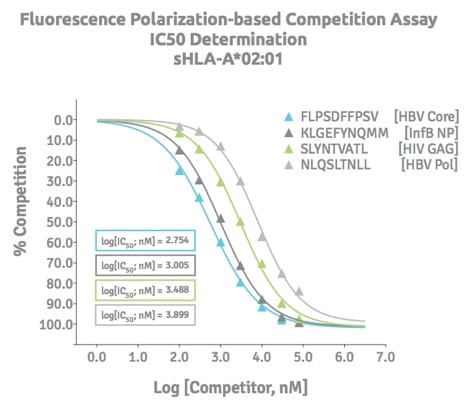
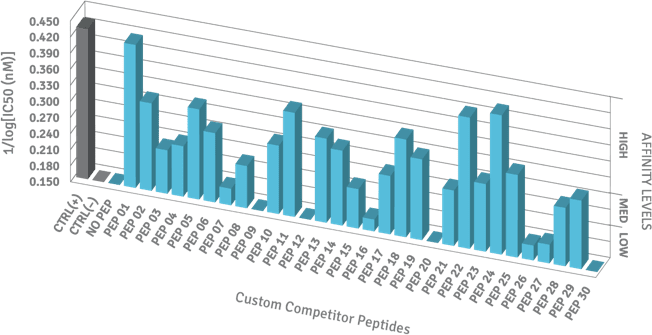
Peptide Epitope Screening
The peptide epitope screening system interrogates peptide libraries with variable sequence data. Pure Protein’s screening system identifies epitope candidates and properly prioritizes these newly found potential T-cell epitopes according to their HLA affinity. Peptide epitope screening efforts are primarily applied to eliminate false positive and negative results generated by computer algorithms. The screening system also resolves restriction elements and allows researchers to compare variable and conserved regions of different clades of a virus.
T Cell Epitope Mapping
T cell epitope mapping has emerged as one of the most powerful new drug discovery tools for a range of biomedical applications. Our mapping service is a high-throughput approach, which allows the creation of individual epitope maps for any protein of interest. This application enables the screening of large libraries of overlapping peptides with a broad selection of HLA alleles to identify high affinity binding peptides and the selection of the most potent T cell epitope candidates.
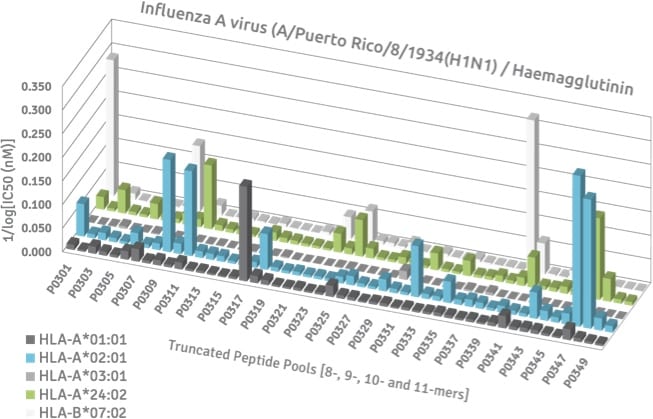
Fluorescence Polarization Technology
Fluorescence polarization (FP) is unique among methods used to analyze molecular binding events because it allows the instantaneous measurement of the ratio between free and bound labeled ligand in solution without any separation steps. The technology is based on the principle that if a fluorescent-labeled peptide binds to a sHLA molecule of higher molecular weight, polarization values will increase due to the slower molecular rotation of the bound probe.
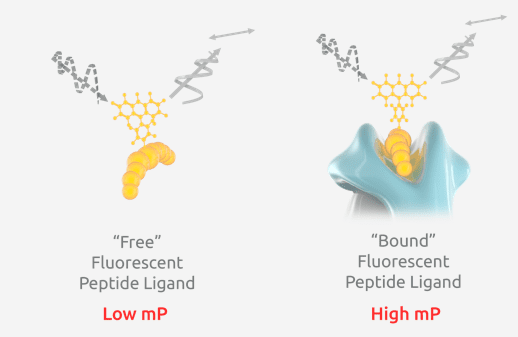
Competitive Assay Technology
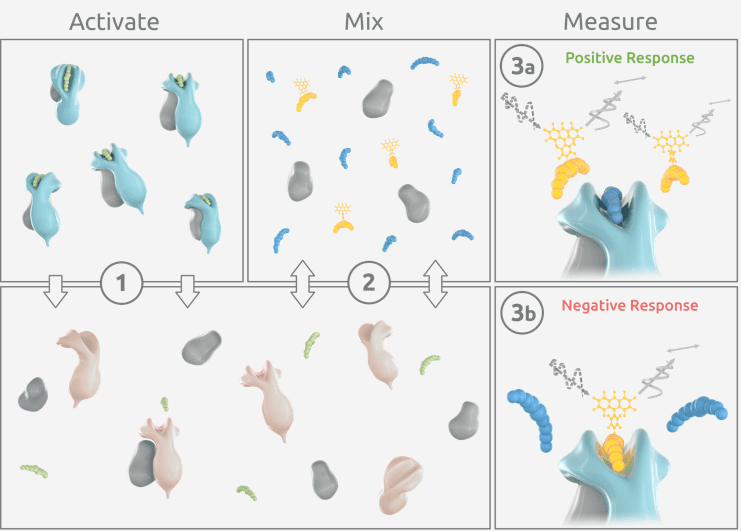
Advantages
You might also be interested in...
Soluble HLA Class II Proteins
Mammalian produced, zipper stabilized, endogenously loaded, and naturally folded recombinant soluble HLA Class II proteins
Soluble HLA Class I Proteins
Mammalian produced, endogenously loaded, and naturally folded recombinant soluble HLA Class I proteins
Soluble HLA Technology
Learn more about our sHLA Technology and how it can improve the quality and speed of your science

